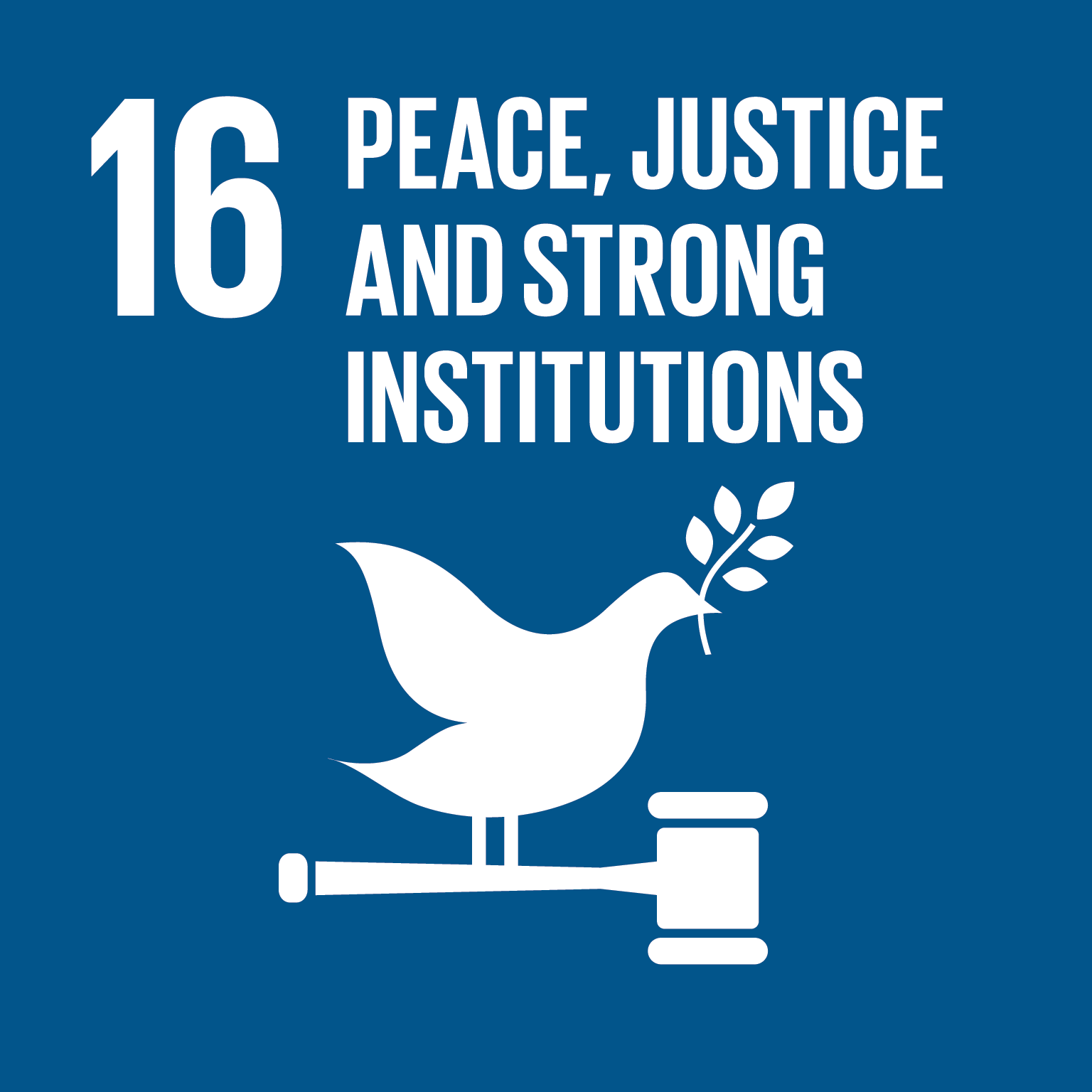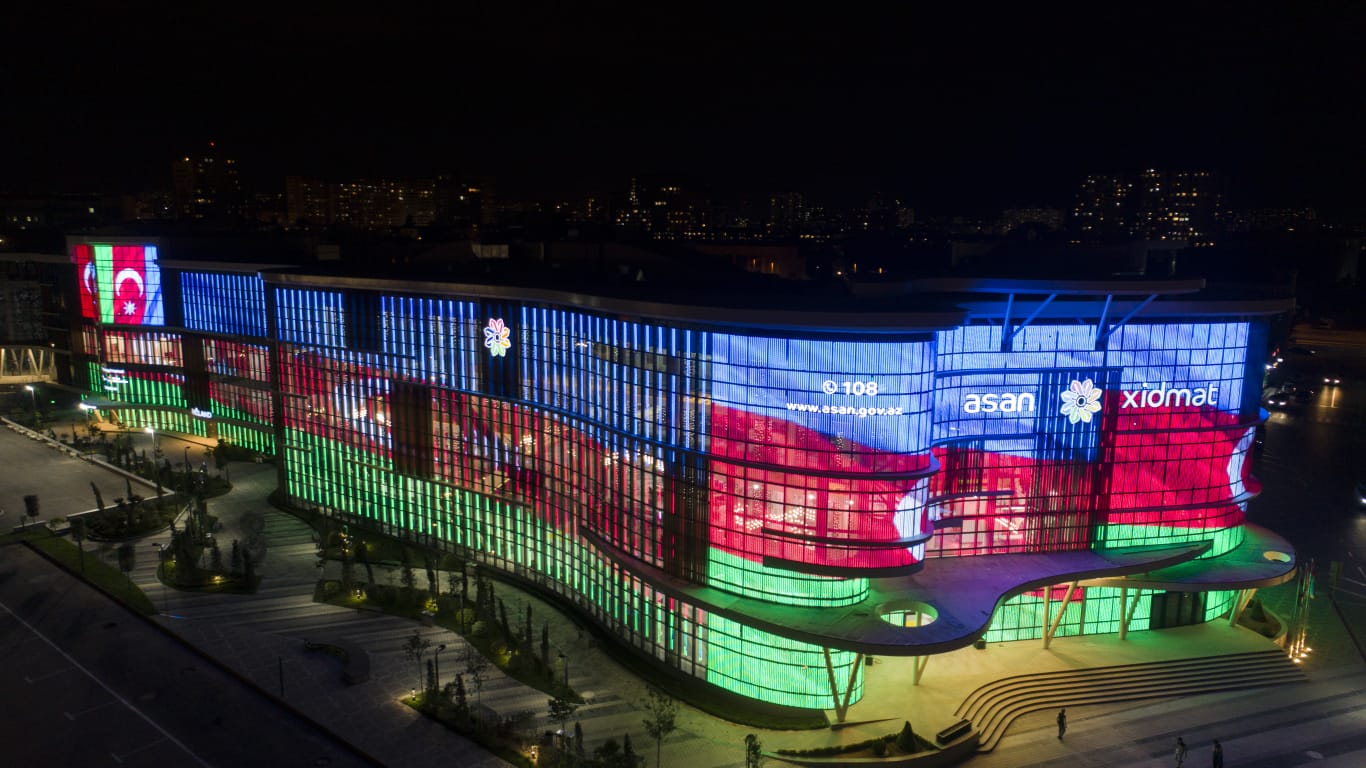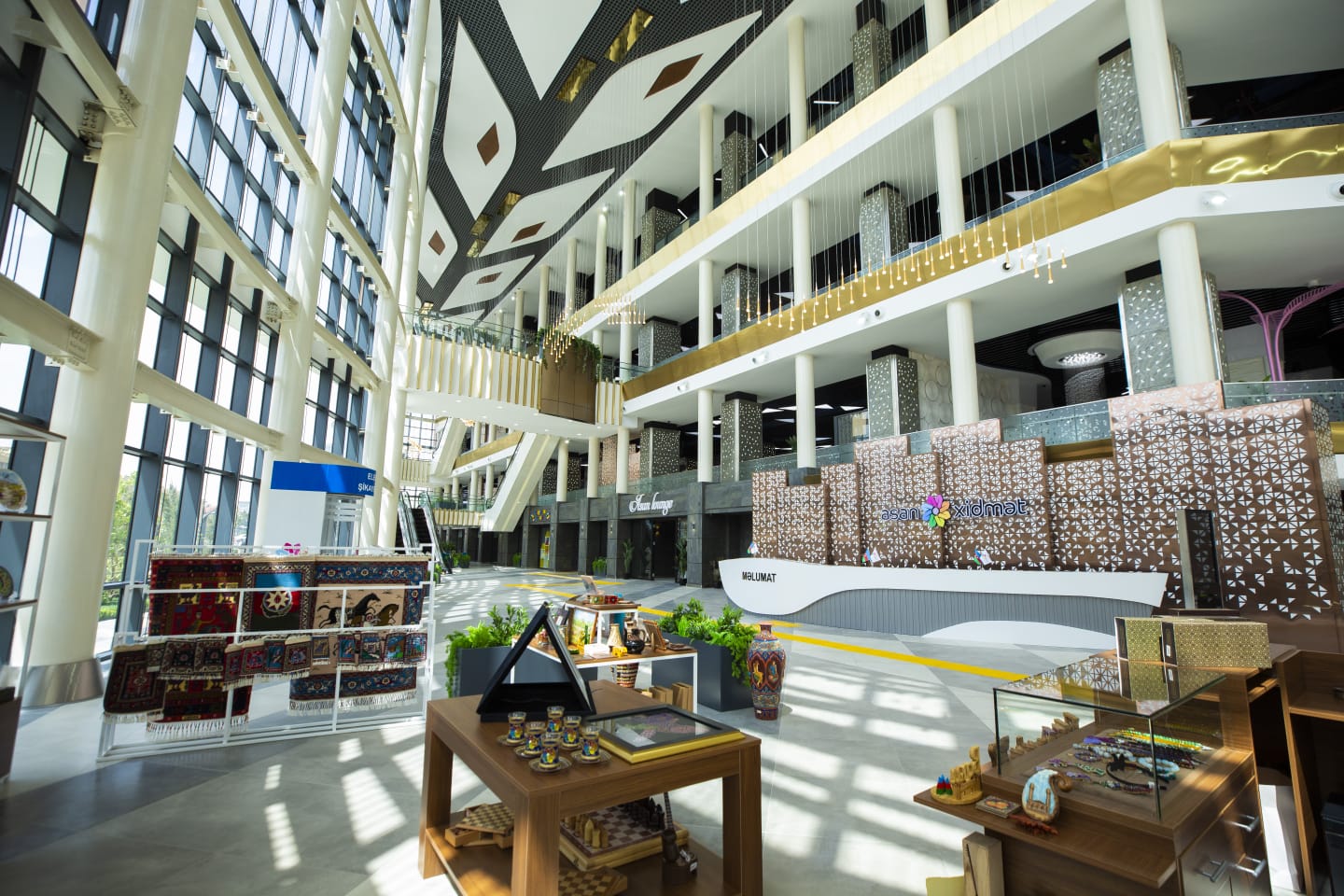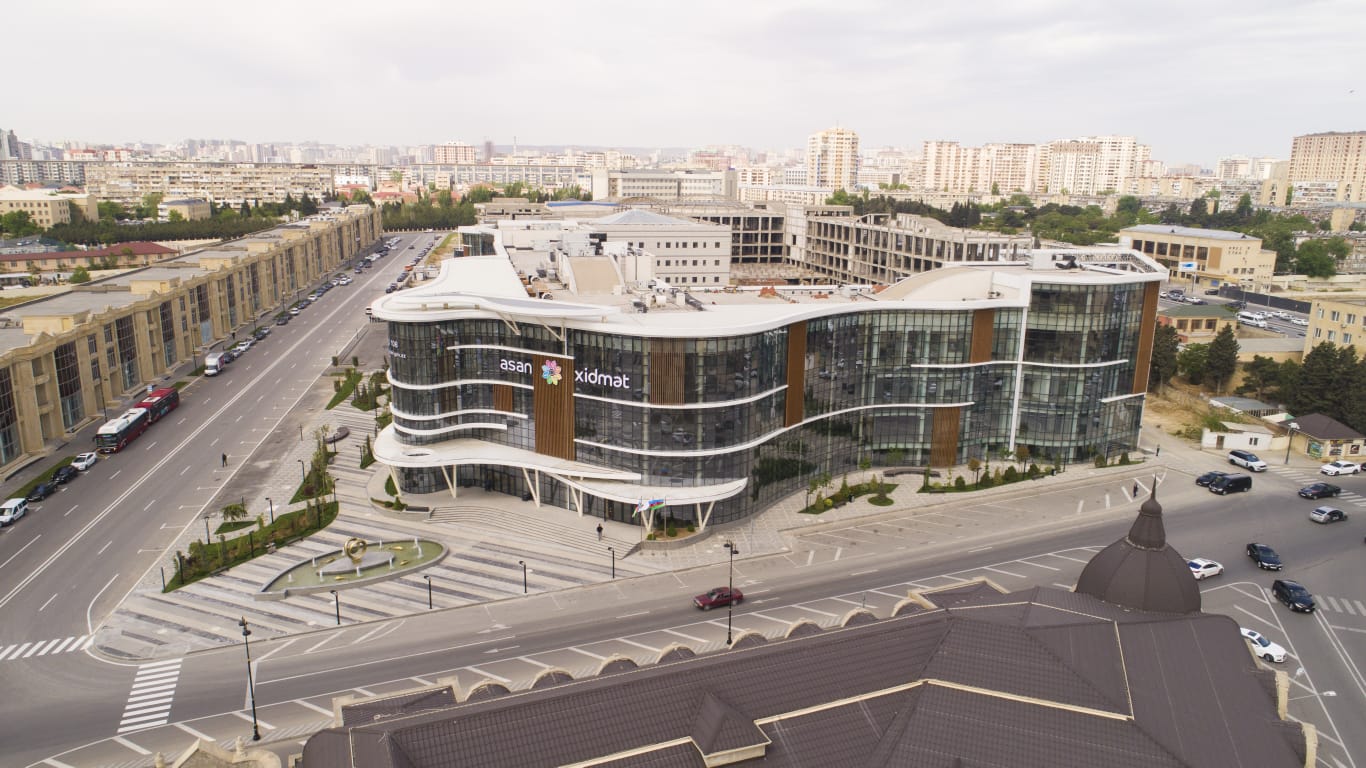 Excellence in Public Service Delivery in Azerbaijan – the case of ASAN Service
Retooling governance mechanisms to improve public service delivery by putting people first
Excellence in Public Service Delivery in Azerbaijan – the case of ASAN Service
Retooling governance mechanisms to improve public service delivery by putting people first

Challenges
Azerbaijan faced challenges in delivering public services due to a lack of accessibility, efficiency, and accountability among entities. Unnecessary bureaucracy, lack of access to services within one single building, undue costs, a lengthy process of document submission, the absence of a unified body responsible of standardization, coordination and digitalization of public services were the main problems besetting the public sector. The establishment of a modern management mechanism in the field of public service delivery was therefore crucial for subsequent actions aimed at reforming the system. Since the adoption of the Sustainable Development Goals (SDGs), setting up effective and transparent institutions has been one of the major targets of the international community. The project aimed to achieve SDG 16 by building a strong institution to serve for the benefit of the community.
Towards a Solution
Since 2012, the ASAN Service initiative is working to streamline citizens’ access to public services; maintain ethical principles and foster professional skills of civil servants; provide high standards of public services; increase public confidence in state institutions; achieve complete transparency in public service delivery; and maximize the efficient delivery of digital services. “ASAN service” proved itself to be a new concept representing the best national and international practices of public service delivery. It unified 320 services delivered by 11 state and 26 private entities in one place. It simplified procedures for receiving public services via new standards and innovations. In order to ensure accessibility of services and equal opportunities for the public, Mobile ASAN service provided services in 44 destinations to 213,593 individuals in 2021. It established an efficient work style through digitalization of services and a convenient work schedule. ASAN service ensured a “zero corruption zone” as it excludes “hand-to-hand” payments and increases transparency.
The process was participatory in the sense that it involved several relevant state entities, local outsourcing companies specializing in different areas (public-private partnerships), local executive authorities, committees and civil society, all of which contributed to the design and implementation of the initiative.
The provision of transparent and efficient services leaving no-one behind is a key accomplishment, an important goal realized, for the Government of Azerbaijan. Transparency and accountability have been fully attained in all ASAN centres. Thants to these achievements, Asan Service received the United Nations Public Service Award in 2015 in the category of "Improving the Delivery of Public Services.” This special award was presented to ASAN for ensuring excellence in public service delivery through applying digital governance.
ASAN is one of most advanced models of public service delivery. It unifies in one building state and private entities that directly offer their services. Hence, a conflict of interests and duplication of functions between the state agency and servicing entities are avoided. “ASAN Service” has been successful in eliminating corruption at all levels of public service delivery to contribute to the overall economic well-being of the country thereby increasing public trust towards government.
Since its establishment, more than 53 million applications were processed in ASAN Service Centres and the satisfaction rate of the citizens is 99.5 percent, the ultimate proof of sustainability. The citizen centric nature of the initiative ensures to be used over the long term – as citizens can obtain all requisite documents starting from a birth certificate to a death certificate.
The‘ASAN Service’model’s high replicability can be seen in its availability in 23 cities/areas of Azerbaijan, seven of which are in Baku. Due to its potential, the State Agency for Public Service and Social Innovations, under the President of the Republic of Azerbaijan (SAPSSI), has been determined to export the model to other countries. Indonesia, Montenegro, Morocco, Uganda, Uzbekistan are developing their public service systems based on Azerbaijan’s ASAN model.
Moreover, most of the delegates of those countries have participated in the trainings held by SAPSSI experts. The latter conducted multiple field trips to other public service entities abroad to share their expertise and know-how on the ASAN Service system. During the above-mentioned trips, needs assessment reports were prepared and presented to the entities concerned.
Moreover, the “ASAN International Association of public service delivery entities” was founded by some countries (Afghanistan, Azerbaijan, Indonesia, Montenegro, Morocco, Türkiye, Uganda and the United Arab Emirates) that cooperate in the appropriate fields and share innovative approaches. The purpose of the ASAN Association has been to organize institutional networks of professionals (practitioners) and experts (academicians) to discuss ways and means to tackle actual problems and contemporary challenges for efficient management of public services and their delivery, and to set up strategies and frameworks of implementation.
The main takeaway was that transparency was highly instrumental to the functioning of the initiative, as was the application of social innovations. The latter helped to demonstrate the quality difference and to elicit public approval. Another no less important lesson is that ASAN’s public-centric approach is essential for public awareness of the activities of various state entities. The bottom line – it promotes effective citizenship.
Contact Information
Countries involved
Supported by
Implementing Entities
Project Status
Project Period
URL of the practice
Primary SDG
Primary SDG Targets
Secondary SDGs
Secondary SDG Targets
Similar Solutions
| NAME OF SOLUTION | Countries | SDG | Project Status | |
|---|---|---|---|---|
A Billion Brains: Smarter Children, Healthier Economies High Level Meeting on South-South Cooperation for Child Rights |
Azerbaijan, Indonesia, Montenegro, Morocco, Uganda, Uzbekistan | 17 - Partnerships for the Goals | Completed | View Details |
Accelerator Labs Network Following collective intelligence methods to address emerging sustainability challenges and the growing demand for local solutions |
Azerbaijan, Indonesia, Montenegro, Morocco, Uganda, Uzbekistan | 08 - Decent Work and Economic Growth 13 - Climate Action | Ongoing | View Details |
Accessible Digital Textbooks Promoting inclusive education through Accessible Digital Textbooks |
Azerbaijan, Indonesia, Montenegro, Morocco, Uganda, Uzbekistan | 10 - Reduced Inequalities | Completed | View Details |
Access to Justice through e-Services and Dematerialized Case Management Scaling up connectivity and unlocking the digital potential of judicial institutions to enhance access to justice for all |
Azerbaijan, Indonesia, Montenegro, Morocco, Uganda, Uzbekistan | 05 - Gender Equality | Completed | View Details |
ACP Business-friendly Supporting business-friendly and inclusive national and regional policies, and strengthening productive capabilities and value chains |
Azerbaijan, Indonesia, Montenegro, Morocco, Uganda, Uzbekistan | 08 - Decent Work and Economic Growth 17 - Partnerships for the Goals | Ongoing | View Details |


